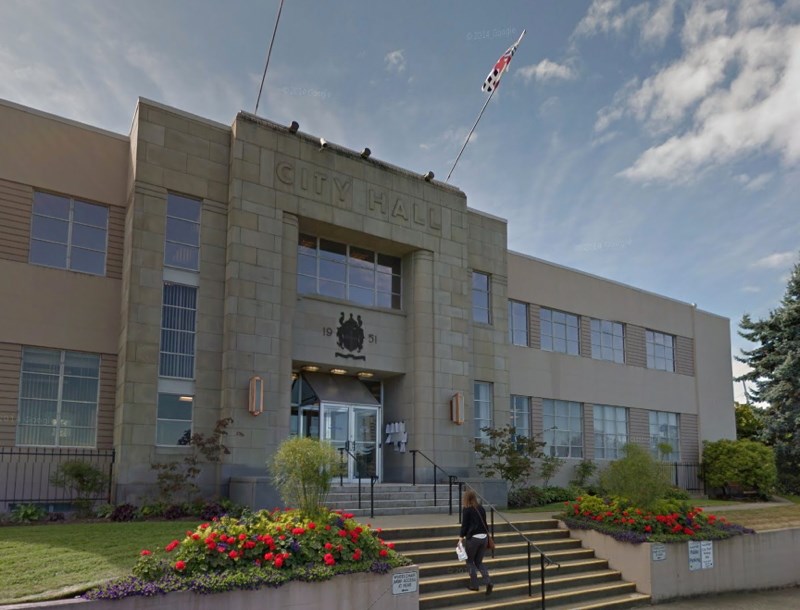 NANAIMO — It will be a year from this week that British Columbians finally get another chance to vote in local elections.
NANAIMO — It will be a year from this week that British Columbians finally get another chance to vote in local elections.
It was a year ago today that a meeting at Nanaimo City Hall was punctuated by a councillor repeatedly inviting the mayor to “bite me.”
It has been one day since we read that a special prosecutor, appointed by the province to look into some of the other drama involving Nanaimo council, would not lay charges.
Sorry, I’m confused: Was that last bit about the time a councillor was alleged to have shoved a bureaucrat, or was it about the time the municipality sued the mayor for allegedly leaking confidential info to a former employee?
Or maybe it was about a letter seven of eight councillors signed last year, calling on the mayor to resign. Or maybe it was about the leaked letter in which the mayor accused other councillors of being mentally ill or bullies.
Say this for Nanaimo council: It’s entertaining — unless you’re in the middle of it. In reality, it can’t be much fun at all.
It’s also frustrating for residents. On Friday, members of the grassroots OurNanaimo group rallied outside city hall to chant “raise the bar for Nanaimo” — Nanaimo bar, get it? — as they marked 365 days to the Oct. 20, 2018, local elections.
The group grew out of the No side that successfully campaigned against the council-backed proposal to borrow $80 million to build a new downtown event centre. Voters rejected the idea by a 4-1 margin in a March referendum. To some, the vote was as much about displeasure with council dysfunction as it was about a new arena.
Wednesday, spokesman Don Bonner said OurNanaimo will assess candidates but not run a slate of its own in 2018. Right now, the group just wants to encourage those with the necessary skill sets to get involved. It plans to hold workshops for potential candidates, events at which former mayors, administrators and others will talk about how local government works (or is supposed to work). “The idea is that people who are up to the job will step forward and those who are not will step back.”
Now, Nanaimo is far from the only B.C. council to deal with dysfunction.
Just down the road in Lantzville, voters had to do an election do-over in 2015 after four of seven elected officials quit, leaving the municipality without enough councillors for a quorum (or a square dance, for that matter).
We have also seen fusses in Pitt Meadows, Pouce Coupe, White Rock, Grand Forks, Chase and, yes, Saanich, where the last election in 2014 was followed almost immediately by tales of spyware and political intrigue.
Saanich is also where a just-released report from a citizens’ committee recommended limiting councillors to two terms in office, arguing some politicians have reached their “best-before date.”
OK, but what about those long-timers who have yet to go sour? Why not leave it up to the voters to decide who to keep and who to pour down the sink? (FYI, the average Saanich councillor has served just under nine years. In Victoria it’s 12. In Langford, a municipality that has only existed for 25 years, the average councillor has sat for more than 19.) What some would like to see instead of term limits is an end to B.C.’s brand-new experiment with four-year terms.
Up until 2014, B.C.’s municipal and school board elections were held every three years. Then the province switched to every four years, reasoning that this would put councillors on the same cycle as provincial and federal politicians and give them time to understand complex issues.
That’s a long time to wait when things go sideways, though. “The four-year election thing works if you have a council that works,” Bonner says. Otherwise, it’s an eternity.
It’s worth noting the Nanaimo council itself has decided to raise the matter with the group representing Vancouver Island municipalities.
Coun. Sheryl Armstrong likes the idea of three-year terms. The former Mountie, who took almost as many votes as the other 12 candidates combined when she won a byelection to Nanaimo council in July, says she’s not sure she would have run had she been looking at four years right off the hop.
For her, the byelection meant just an 18-month commitment to council — long enough for her to learn if she was any good at the job.
Four years is a long time if it turns out you’re a lousy fit. That scares off some prospective candidates.
“I think it eliminates a lot of good people,” she says.
Also, four years might work in major centres like Vancouver, where party politics come into play and being on council is a full-time job, she says, but it’s a long commitment for small-town residents with another, full life to lead.
Why not leave the length of term up to each community? Or why not vary the terms — four years for some positions, two for others — to attract a diversity of candidates?
Remember that up until 1990, B.C. local officials were elected for two-year terms. Not only that, but elections were held annually, with half the council being elected one year and half the next.
Cranky voters didn’t have long to wait.



